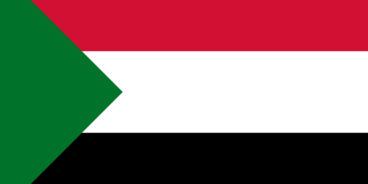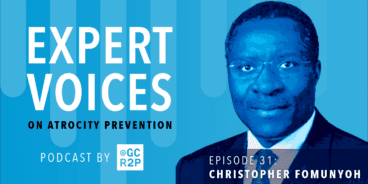
The Security Council Must Uphold the Responsibility to Protect in Côte d’Ivoire
The United Nations (UN) Security Council must take immediate action to protect populations at grave risk of mass atrocities in Côte d’Ivoire. Three times this month the Council has stated its readiness to “impose measures, including targeted sanctions, against those who … commit violations of human rights and international humanitarian law.” Yet with these violations occurring on a regular basis, the Council has failed to follow-through on its threat. The delay in Council action has only further emboldened former President Laurent Gbagbo whose intransigence continues to contribute to populations in Côte d’Ivoire experiencing war crimes and crimes against humanity – crimes that the UN members committed themselves to protect populations from at the 2005 World Summit.
With each passing day the death toll and number of displaced rises. In a 17 March attack that the UN peacekeeping mission in Côte d’Ivoire (UNOCI) suggested may constitute crimes against humanity, security forces loyal to Gbagbo fired mortar rounds on a busy market, killing 30 people. Since 28 November, post-electoral violence has, according to the UN, killed over 410 people, displaced over 300,000 in Abidjan, and sent over 90,000 fleeing into neighboring Liberia. The incitement of violence towards UN personnel and peacekeepers continues unabated as does xenophobic hate speech — including by the pro-Gbagbo state owned Radiodiffusion Télévision Ivorienne — targeting real and perceived supporters of President Ouattara and West African Muslim immigrants.
Security forces and militias loyal to Gbagbo are attacking civilians perceived to be supporters of Ouattara and individuals on the basis of their ethnic or religious affiliation. Increasing reports of attacks on civilians by pro-Ouattara forces are also worrying. The predominantly pro-Ouattara neigbourhood of Abobo, in Abdijan, has become a battle zone between pro- Gbagbo forces clashing daily with pro-Ouattara militias and supporters, including the ‘invisible commandos,’ about whom little is known. These clashes are spreading into other neighbourhoods in Abdijan, and the fighting between the pro-Gbagbo security forces and the northern rebel group, Forces Nouvelles, supportive of Ouattara, is escalating in the west and elsewhere in the country.
While the responsibility to protect places a special emphasis on prevention, member states also accepted a responsibility to take action to protect and save lives should preventive efforts fail. The council has shown in its response to Libya that it is capable of acting quickly to protect civilians from atrocities. Not only are the risks to populations clear in Côte d’Ivoire today but the evidence of the commission of crimes and their incitement abounds. The country’s history should also serve as sufficient warning to spur action. The 2002-2003 civil war saw civilians bare the brunt of mass atrocities perpetrated by all sides — including those fighting in today’s conflict.
It should be made abundantly clear to both Gbagbo and Ouattara that their supporters must lay down their arms and that those who have incited or perpetrated crimes will be held accountable. The parties cannot use a resort to violence to achieve a favored outcome to a political dispute. The Security Council must, in an effort to put pressure on Gbabgo and his inner circle, act on its threat of targeted asset freezes and travel bans. The Security Council must push for the speedy deployment of the additional 2,000 troops it has allocated to UNOCI. It must request that UNOCI, with the support of troop contributing countries, fulfill its protection of civilians mandate by deploying to areas where populations face the greatest risk and, where needed, respond robustly to threats. Council members should, in conjunction with the Economic Community of West African States and the African Union, take steps to halt the broadcasting of hate speech and create contingency plans for more coercive action, including military options.
It is clear that the time for threats has passed and now is the time for follow-through. The Security Council must take preventive and protective action in keeping with the responsibility to protect before more lives are needlessly lost and the cost of action becomes significantly higher.
Related Content


Sudan: UN Security Council must take urgent action to protect civilians
